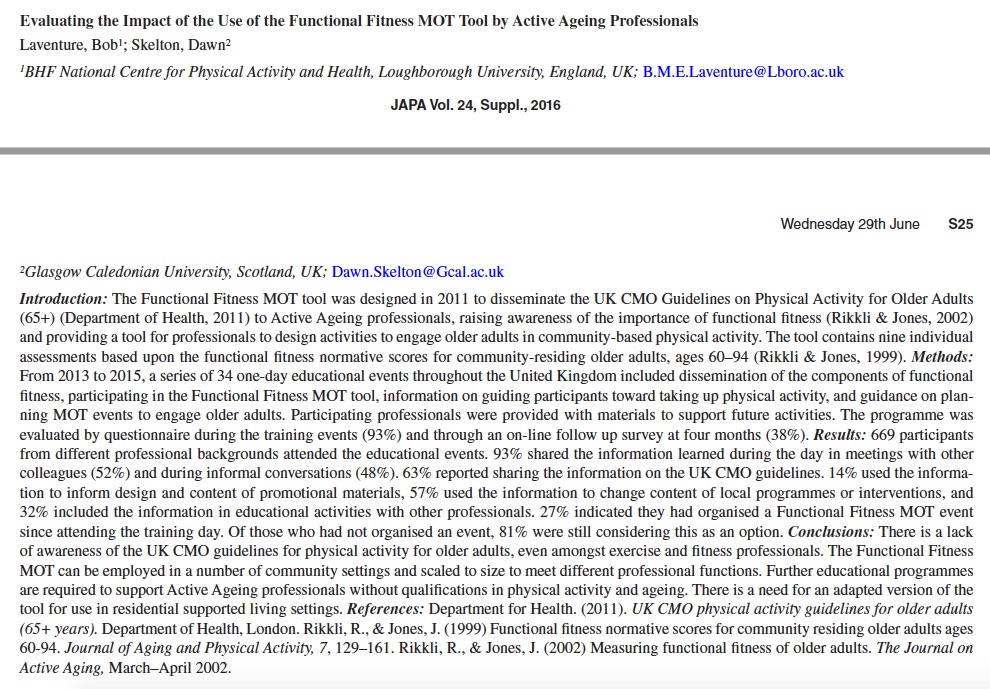Evaluating the impact of the use of the Functional Fitness MOT Tool by Active Ageing Professionals (Abstract in JAPA 2016)
At the World Congress of Active Ageing in Melbourne, Australia, in 2016, Bob presented an abstract on the impact of the FFMOT tool.



